LSE blogs regularly feature book reviews of the latest publications from across the social sciences and humanities. But which books were LSE blog editors gripped by in 2023? In this list, five LSE blog editors recommend some of their favourite reads of the year.
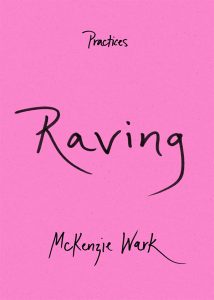 Raving. McKenzie Wark. Duke University Press. 2023
Raving. McKenzie Wark. Duke University Press. 2023
An affectionate ode to raving and hedonism in our times, arguing for the unifying powers of Techno for queer communities. Wark situates raving in the post-pandemic era and considers its interactions with temporal possibilities and desire. Wark engagingly maps the philosophical ramifications of the practice through recounting her own adventurous chronicles; extracting all the pleasures of raving – minus headaches.
Amphibian and Other Bodies. Vida Adamczewski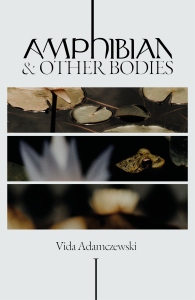 . Toothgrinder Press. 2023.
. Toothgrinder Press. 2023.
This collection of stories and a short lyric play is an impressive work of collagic fiction which handles loss and reclamation with a vice-like grip. Visceral and viscous, Adamczewski’s writing is sticky, metamorphic, and richly unforgettable.
Recommended by Elinor Potts, Communications Coordinator at LSE Press and Editor of the LSE Press Blog.
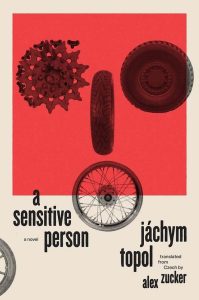 A Sensitive Person. Jáchym Topol (translated to English by Alex Zucker). Yale University Press. 2023.
A Sensitive Person. Jáchym Topol (translated to English by Alex Zucker). Yale University Press. 2023.
It’s a bit of a fever dream journey through Bohemia, in story and in style. I won’t say too much about what happens but like the first novel that got me into Topol, it’s a chaotic mission with tanks, romance, Shakespeare, spirits, and villagers. We are led by a travelling actor into police chases, marital battles, looting, Shakespeare references, alcoholism, and bad cars. Having travelled too far into the anti-immigrant storm in Western Europe, Papa tries to get home, but instead ends up on the run from everyone. It’s plot driven but in the way that a runaway mine train is still technically driving.
It’s a bit like someone ballroom dancing with the ruins of Eastern Europe but in a way which feels different when it’s someone who is from there, without an orientalist romanticisation of its brutalism, lunacy, and relics of crumbling political empires. In an interview Topol once said of himself that he has “an acute interest in wreckage and ruins”, and of Europe that “The East is poorer and more broken, the horrors of history have taken a bigger bite out of it. Still, this secondhand Europe is my home, my territory. I like it here. It may not be the easiest place to live, but it’s a good place to write about.” It’s a novel which holds a mirror up to the hypocrisies and ridiculousness of Europe right from the centre of it.
 Private Notebooks 1914-1916. Ludwig Wittgenstein. WW Norton & Co. 2022.
Private Notebooks 1914-1916. Ludwig Wittgenstein. WW Norton & Co. 2022.
One of the legends of Western philosophy, he’s at war reading Tolstoy’s Gospel. He’s held on a pedestal as one of the great logical thinkers of his era, and contemporaries paved the way for their version of secular modernity, yet he gives his readers a way to be atheist without seeing religious beliefs as irrational. In his diaries, he prays to God and Tolstoy.
Between 1914 and 1916 there are weeks on end where he writes things like “tried to write something. couldn’t.” and “wow I am depressed.” Then he drops his most groundbreaking theories on the next page. It’s moving and motivational, particularly for anyone working in social sciences.
So, an icon, for academics, atheists, and theists.
Recommended by Flora Rustamova, Managing Editor of LSE Religion & Global Society Blog
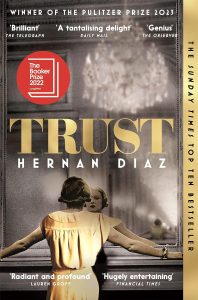
Trust. Hernan Diaz. Picador. 2023 (paperback).
In the social sciences trust is a quintessential feature of modern society. To carry out my work on the LSE Impact Blog I trust in a multitude of human and technical systems, not the least of which are the authors, who I trust are giving me a true account of their work. Unsurprisingly, such questions of what and who do you trust lie at the heart of Hernan Diaz’s intriguing novel, which takes the form of a series of nested narratives focused on the financial success and personal life of an early twentieth century Wall Street plutocrat. These narratives hinge on how trust is constructed, through the authority of their narrators, different media (scabrous satire, memoir, investigative journalism, the fragment) and the ways in which they are assembled and presented to different audiences. Read sequentially these accounts may lead to a particular interpretation, although perhaps this arrangement itself is a comment on our need to discover a hidden truth within complexity? Regardless, Trust provides a compelling historical reminder that our ‘post-truth’ era is hardly unique. Further, as we approach a year of contested elections and continue to come to terms with the way in which generative AI is reshaping our trust in images and the written word, Trust’s themes of media manipulation and image management remain poignantly relevant.
Recommended by Michael Taster, Managing Editor of LSE Impact Blog
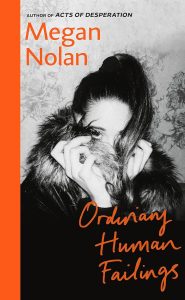 Ordinary Human Failings. Megan Nolan. Jonathan Cape. 2023.
Ordinary Human Failings. Megan Nolan. Jonathan Cape. 2023.
Nolan’s second novel follows an Irish family in 1990s London who find themselves at the centre of a tragedy when a young child on their estate is killed, and an investigation begins. What is set up to be a crime thriller emerges as a subtle examination of class prejudice, social stigma, family relationships, emigration and the far-reaching legacies of shame. Nolan’s writing displays deft psychological and emotional nuance as she moves between the perspectives of different family members and the journalist attempting to further his career by selling their story. This is a novel of great humanity about ordinary trials and failures and the difficulty of moving on from trauma.
Why is it so difficult to make sense of, and act on, climate change? David Stainforth’s Predicting Our Climate Future calls for an urgent re-evaluation of how we go about the study of climate change in the physical sciences, the social sciences, economics and policy. Stainforth writes with a refreshing openness about uncertainty, arguing that we need to account for the limitations of scientists’ understanding of the climate system and how these affect our ability to predict climate change. Only by accepting these limitations and working together across disciplines, he argues, can we effect tangible solutions to the complex issues posed by our changing climate. The book’s combination of big ideas, practicality, candour and humour made for an engaging and eye-opening read.
Recommended by Anna D’Alton, Managing Editor of LSE Review of Books.
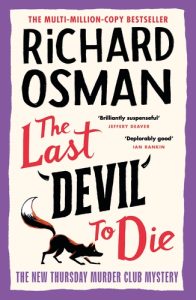 The Last Devil to Die. Richard Osman. Viking. 2023.
The Last Devil to Die. Richard Osman. Viking. 2023.
2023 saw Richard Osman’s retirement-community-residents-turned-sleuths return for a fourth instalment – this time tackling the murderous aftermath of a smuggled package going missing.
I’ve actually read the entire Thursday Murder Club series during 2023, and this stint at Cooper’s Chase didn’t disappoint. It’s a warm hug of a book, instilling Osman’s trademark humour and a classic whodunnit within the realities of living with friends nearing the end of their lives. What gets me about these books is how well-observed they are. Anyone who knows an older person can see them in Joyce, Elizabeth, Ron and Ibrahim, and that makes you laugh (and cry) along with the ups and downs of each character’s plotline. Osman’s writing is clever but readable, realist but funny, and I’d recommend this to anyone wanting to kickstart their 2024 reading list.
Recommended by Cecily Sheppard, Marketing and Communications Manager at LSE Careers and Editor of the LSE Careers Blog.
Note: This reading list gives the views of the contributors, and not the position of the LSE Review of Books blog, or of the London School of Economics.


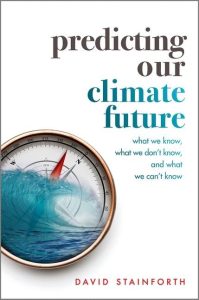






1 Comments